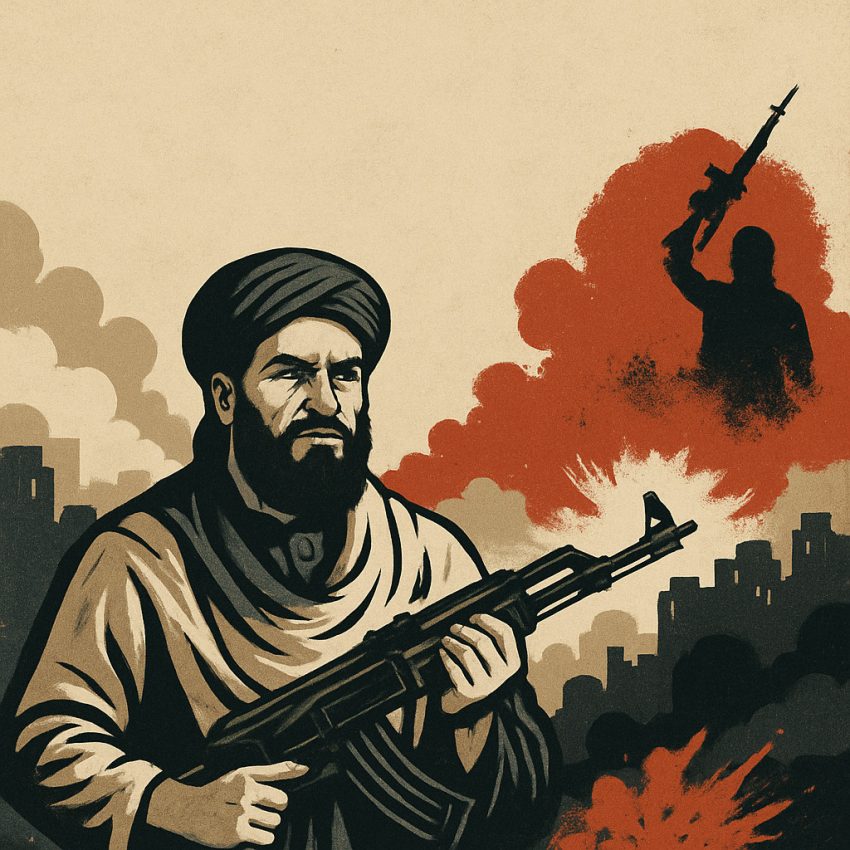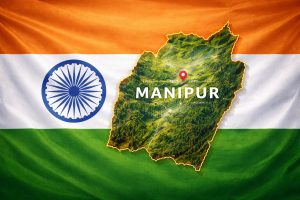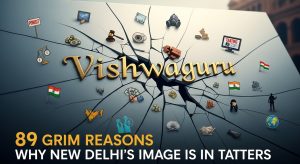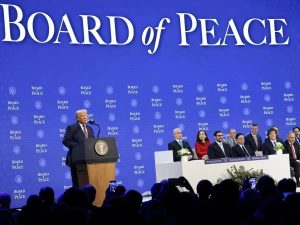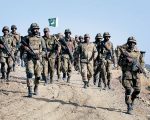For two decades, Pakistan’s mornings have begun with a quiet dread: a mother staring at an empty doorway where her son should be, a shopkeeper sweeping up shattered glass, children learning multiplication in classrooms that smell faintly of fear. These are not abstractions or numbers on a ledger; they are the faces and routines that make a country live. Pakistan did not choose suffering. It absorbed refugees, shared bread and shelter with Afghans who fled war, and hoped neighbours could one day turn down the volume on violence. Instead, the violence turned inward.
Those who cross the Durand Line to plant bombs in marketplaces and mosques are not warriors in any honourable sense. They are terrorists — men and women who have wrapped themselves in scripture and used it as a mask. They call their deeds “jihad,” yet their victims are fellow Muslims: a teacher in a village school, the young man selling tea at a roadside stall, the grandmother returning from prayer. The Prophet ﷺ taught that defending one’s life and family is worthy of honour; when individuals have that right, a state protecting millions holds an even weightier duty.
This is not simply a legal argument; it is an ethical one rooted in belief. The Qur’an warns against killing the innocent and prescribes stern consequences for those who spread corruption on earth. Classical scholars framed those who turn faith into a pretext for murder as Khawarij — a term that carries both theological censure and the practical implication that such fitna must be confronted. When a community’s moral language is hollowed out by bloodshed, defending life becomes a religious and human imperative.
Before soldiers took to the field, Pakistan tried to talk. For years officials travelled, pleaded, and documented breaches: repeated high-level visits, hundreds of border meetings, dozens of formal protests. These were not mere diplomatic rituals; they were phone calls made at night, pleas that became louder and sharper as lives were taken. Each unanswered appeal left families waiting by the radio. Each ignored demarche deepened the sense that something more than negligence was at play.
Then came a bitter turning point. In October 2025, as Pakistan moved against bases used by these terrorists, strikes came across the border — not incidental clashes, but direct attacks. They did not happen in isolation: they coincided with the Afghan foreign minister’s visit to India, Pakistan’s long-standing rival. This is not to reduce human tragedy to geopolitics, but to insist on honesty about causes. Sanctuary for terrorists, and outside support for them, turns a local tragedy into a regional wound.
The human cost of that calculus is worn on faces in towns and cities. In the weeks after an attack, markets reopen but the laughter takes time to return. Mothers teach their little ones to duck at loud noises, and teachers add an extra look at the door before starting class. These small rituals are the quiet aftermath of violence; they also explain why a nation can no longer rely on platitudes.
When diplomacy failed, action followed. That action was framed by scripture and by a clear-eyed need to protect ordinary life. The prophetic tradition admonishes those who tolerate rebellion that destroys the fabric of society. This is not a licence for cruelty; it is a stern refusal to let terror become normal. Pakistan’s aim has been narrow and painful: dismantle the safe havens, break the command structures, and restore a degree of everyday safety so families can sleep without counting explosives.
It is easy — and cowardly — to moralise from a distance. The harder thing is the quiet courage of a parent bringing a child to school after a blast, or a shopkeeper reopening a stall despite the risk. Those are the acts that defend a country’s soul. Those are the acts that matter.
Those who murder in the name of Islam are not guardians of the faith; they are its desecrators. Those who offer them shelter are not neighbours; they become accomplices. And those who, at great cost, stand up to them — soldiers, medics, neighbours — are defending both a people and a conscience. Pakistan’s struggle against this fitna al-Khawarij is raw and costly, but it is a defence of ordinary things: the right to return home, to pray in peace, to let children learn without watching the horizon for the next explosion. That is what makes resistance not only necessary, but human.

